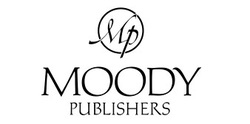
I submitted my book proposal for Reenacting the Way (of Jesus) to multiple Christian publishers. I had been told the prowess of your publishing company determined your status as an author. If you wanted to get your message out, find a big publisher to market it well.
I knew my chances of landing a book contract were slim. Most Christian publishers are profit-seeking companies just like non-Christian publishing companies. They want authors who will sell thousands of books, preferably on pre-order. Since I don't speak to 100,000+ people annually via conference tours, church web broadcasts or radio programs, I don't have a big audience ready to buy books. So publishing my book runs a high risk for any company's bottom line. That's business. It makes sense. What doesn't make sense is the rejection letter I received from Moody Publishers.

I’ve had the chance to read through your proposal. I appreciate what you are looking to accomplish with this in-depth look at Jesus actions. I think it is valuable to open the eyes of believers to some of the less-obvious truths of scripture, especially in the life of Jesus.
After reading through this, however, I think it isn’t going a direction we would like to publish. The primary challenge we would face with our audience is that the book is a little technically in-depth. It is less of a narrative and has more of a historical commentary feel. The other challenge is that, when explaining things that are not readily obvious to a lay person reading his bible, it is important not to make him feel like he is unable to truly understand scripture without the background knowledge. While you do NOT make the reader feel this way intentionally, the very content of the book calls into question a normal reading of scripture.
I think you might be best suited to pursue this as more of a theological/academic resource for pastors and scholars who are eager and prepared to dig deeper than the average reader."
Keeping You Happy, Dumb and Mishandling Scripture
Zondervan and IVP turned down my proposal in 2009 because their financial situations were tight in the recession. They needed books by authors with established sales records. My "150 books sold to Graduate Schools of Theology around the world" did not impress (see The Common Tradition Behind Synoptic Sayings of Judgment and John's Apocalypse).
However, the two reasons Moody Publishers cited for passing on the proposal were alarming: (1) the book was a "little technically in-depth" and (2) a reader may "feel like he is unable to truly understand scripture without the background knowledge." Moody had no interest in publishing a book with "depth" created by historical data nor moving the "average reader" beyond "a normal reading of scripture." Their advice was to stick the book in an academic line for those who want "to dig deeper." They assumed no one other than "pastors and scholars" wanted to dig into the real meaning of Scripture.
I was floored. It made sense to say I wouldn't make you money. But, it doesn't make sense to purposefully publish books without the depth to move Christian readers beyond a normal (i.e., uninformed) reading of Scripture. Much of Scripture cannot be understood without serious study of the literary and historical contexts. That's just the way it is. The premise behind getting my Ph.D. in Biblical Studies and teaching Hermeneutics for the last decade is: understanding the whole Bible requires technical skills. Hiding that reality from the "average reader" is downright deception justified by making readers "feel" good. Screening out books that reveal more is needed to understand Jesus or the Bible keeps your audience dumb, happy and mishandling their Bibles. That got me fired up.

"Thanks for taking the time to review the proposal carefully. It is disappointing to hear that my work does not match your publishing goals. Maybe next time.
I would encourage your team to think about the effect you are having on a broad body of Christians. Purposefully screening out books that bring both depth and point the way to a more accurate reading and response to Scripture is a tenuous way to serve the body of Christ. Although it may be hard for someone to realize that their use of Scripture or understanding of Jesus has been inadequate, it is necessary, healthy, and a growth opportunity. Relegating all books with depth that may challenge the status quo to an academic line of books steals the opportunity for a larger, popular audience to grow. I say these things as a teacher in many "lay" settings where people have been disappointed or almost disillusioned by the inadequate use of Scripture they were taught after hearing my content, but then inspired by the whole new world of following Jesus that has been opened up afterwards."
Not all Christian publishers screen books when they reveal how much work is required to interpret the Bible correctly. I am thankful for IVP's publication of Misreading Scripture Through Western Eyes and Zondervan's How to Read the Bible For All It's Worth. But, most of what you'll find marketed and made available at conferences and Christian stores have been selected for appeal rather than substance.
"Be careful. You may be reading Christian books designed to affirm you in your ignorance rather than educate you for your growth."
Dumbed-down content is the reason why so many Christians cannot interpret their Bible any better after consuming a bunch of popular Christian books. Christians have to settle for ripping "nuggets of truth" out of context to apply as they see fit. Or, they read a Bible chapter each day searching for language with metaphorical or coincidental connections to their circumstances. If something feels right, they go with it. The actual purpose of what God was doing in biblical history or what the texts actually mean in their original context is sidelined for modern imaginations of its relevance. Western assumptions replace the ancient meaning, and God's Word is conformed to personal preferences. It doesn't have to be this way.
The Protestant Church is responsible for placing a Bible in every language and home. That push for the last 500 years has not been matched by efforts to give people the skills to handle the Bible correctly. It's made private Bible misinterpretation standard. Expediency has ruled over accuracy in personal Bible use. Churches have encouraged personal Bible reading but not proper Bible interpretation. Christian publishers are only exacerbating the problem when they screen out books for substance that may cause the average Christian reader to move beyond their normal misuse of Scripture.
Be careful. You may be reading Christian books designed to affirm you in your ignorance rather than
educate you for your growth. The skills you seek to handle the Bible properly may be hidden in academic lines rather than sold at your local book store. I self-published my last book to make sure that didn't happen.
The best books you know about the Bible may be a result of Christian publishers pandering to you rather than pushing you towards the truth. Be discerning.






 RSS Feed
RSS Feed
